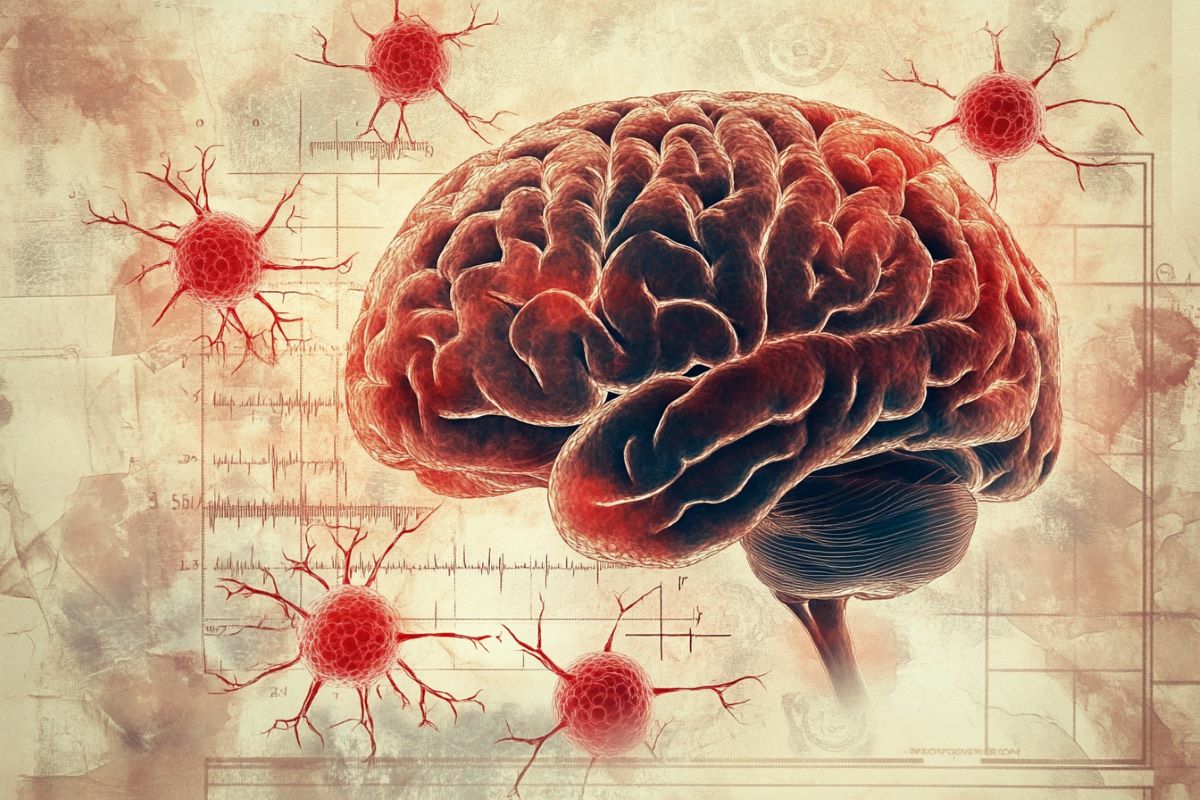
Summary: Recent research indicates that intracranial hemorrhages, commonly referred to as "brain bleeds," significantly double the likelihood of developing dementia later in life. Historically, ischemic strokes, which are caused by blood clots, have been associated with cognitive decline; however, this new study illustrates that brain hemorrhages also play a crucial role in increasing the risk of dementia.
A detailed analysis, utilizing Medicare data from nearly 15,000 individuals, revealed a twofold rise in dementia diagnoses approximately 5.6 years after experiencing a brain bleed. These findings propose that hemorrhages may trigger dementia through the accumulation of amyloid beta or arise from mutual risk factors, such as chronic vascular damage.
In light of these findings, experts underscore the necessity for regular cognitive assessments for individuals who have suffered a hemorrhage. Future research endeavors will delve deeper into the underlying mechanisms and assess the safety of Alzheimer’s treatments for this patient demographic.
Key Facts:
- Increased Dementia Risk: Experiencing an intracranial hemorrhage doubles the chance of developing dementia within several years.
- Potential Causes: Brain bleeds may initiate dementia by facilitating amyloid beta buildup or could share risk factors with other neurodegenerative conditions.
- Clinical Implications: Continuous monitoring for cognitive decline is essential for patients who have had a brain bleed, and Alzheimer’s treatments might need to be re-evaluated for this group.
Source: Weill Cornell University
Researchers at Weill Cornell Medicine have disclosed that intracranial hemorrhages, resulting from ruptured blood vessels in the brain, substantially increase the risk of dementia in later years.
While ischemic strokes related to blood clots have been more widely discussed in relation to cognitive decline, the study published on January 30 in Stroke extends these important findings to include hemorrhages.
Dr. Samuel Bruce, the lead author and assistant professor of neurology at Weill Cornell Medicine, stated, “We consistently observe a heightened risk of dementia, irrespective of the type of hemorrhage.”
This information highlights the importance of regular cognitive evaluations for individuals who have undergone an intracranial hemorrhage, as these assessments could greatly impact future treatment strategies for patients and their families.
Analyzing Medicare claims from 2008 to 2018, Dr. Bruce and colleagues examined nearly 15,000 individuals who experienced various forms of intracranial hemorrhages, defined as instances when blood collects in the brain tissue or beneath the skull—often occurring spontaneously rather than from injuries.
The study discovered that individuals who suffered an intracranial hemorrhage had a twofold increased risk of receiving their first dementia diagnosis within an average of 5.6 years, compared to over two million individuals who did not experience such an event.
This finding aligns with similar research indicating a correlation between hemorrhages and subsequent cognitive complications. For instance, a Danish study found that 11.5% of individuals with brain ruptures subsequently developed dementia, showing a 2.5-fold risk increase compared to the general populace.
Dr. Santosh Murthy, senior author and associate professor of neuroscience at Weill Cornell Medicine, explained, “The reasons behind the increased dementia risk post-hemorrhage may vary.” Hemorrhages could directly provoke dementia by promoting amyloid beta protein accumulation in the brain, which interferes with cognitive function. Alternatively, hemorrhages and dementia could be intertwined through shared risk factors, such as ongoing vascular damage.
Dr. Murthy stressed the need to consider the broader implications of hemorrhage-related dementia. For example, prioritizing research on the safety of anti-amyloid beta treatments for Alzheimer’s in those who have experienced a hemorrhage is critical.
The study concludes that novel therapies for intracranial hemorrhages might lead to longer survival times for patients post-incident, necessitating further exploration into how these events contribute to various dementia subtypes.
About this Neurology Research News
Author: Barbara Prempeh
Source: Weill Cornell University
Contact: Barbara Prempeh – Weill Cornell University
Image Credit: Neuroscience News
Original Research: “Non-Traumatic Intracranial Hemorrhage and Risk of Incident Dementia in U.S. Medicare Beneficiaries” by Samuel Bruce et al. Stroke
This summary elucidates the significant connection between brain bleeds and dementia, emphasizing the urgency for ongoing cognitive evaluation and potential treatment adjustments for affected patients.









